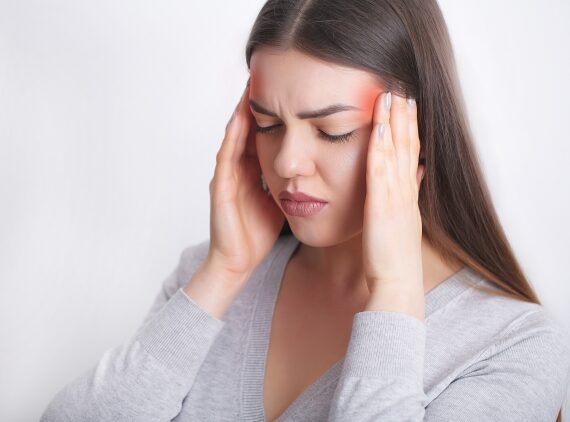Headaches and migraines are among the most common health complaints worldwide, affecting millions of people daily. While headaches can range from mild discomfort to severe pain, migraines are often more intense, accompanied by symptoms like nausea, sensitivity to light and sound, and even visual disturbances. Effective management is crucial not only for relief but also for improving overall quality of life. This article explores the causes, symptoms, and evidence-based strategies that really work in managing headaches and migraines.
A headache is a broad term that refers to pain or pressure in the head. They can be:
- Tension headaches – usually caused by stress or muscle strain, producing a dull, aching pain around the head.
- Cluster headaches – severe, recurring headaches often felt around one eye.
- Sinus headaches – caused by sinus infections or congestion.
A migraine is a neurological condition characterized by recurring, intense headaches, often on one side of the head. Unlike regular headaches, migraines can last for hours or even days and are accompanied by:
- Nausea and vomiting
- Sensitivity to light and sound
- Aura (visual disturbances like flashing lights or zigzag lines)
Understanding triggers is the first step toward effective management. Some common factors include:
- Stress and anxiety
- Poor sleep patterns
- Dehydration
- Hormonal changes (especially in women during menstruation or menopause)
- Dietary factors (caffeine, alcohol, processed foods, chocolate)
- Environmental factors (bright lights, loud noises, strong smells)
- Regular Sleep Routine – Going to bed and waking up at the same time daily helps stabilize brain activity.
- Hydration – Drinking enough water can prevent dehydration-related headaches.
- Exercise – Moderate activities like yoga, walking, or swimming reduce tension and improve circulation.
- Stress Management – Techniques like meditation, deep breathing, and journaling can lower stress-induced headaches.
- Limit caffeine and alcohol intake.
- Eat balanced meals to avoid low blood sugar levels.
- Identify and eliminate trigger foods (common ones include cheese, chocolate, and processed meats).
- Aspirin, ibuprofen, or acetaminophen can help with tension headaches.
- Use with caution—overuse can lead to rebound headaches.
- Triptans – Help reduce migraine symptoms by targeting serotonin levels.
- Beta-blockers or antidepressants – Used for prevention in chronic migraine patients.
- Anti-nausea medication – Helpful when migraines cause vomiting.
- Cold or warm compresses – Cold packs on the forehead or warm compresses on the neck and shoulders help relieve pain.
- Acupuncture – Shown to reduce frequency and severity of migraines in some individuals.
- Massage therapy – Relieves muscle tension and promotes relaxation.
For patients with severe, recurring migraines that don’t respond to standard treatments, doctors may recommend:
- Botox injections – FDA-approved for chronic migraines.
- Nerve stimulation therapy – Devices that send mild electrical impulses to the nerves linked to headaches.
- Keep a headache diary to track triggers and symptoms.
- Avoid skipping meals.
- Limit screen time and take regular breaks from digital devices.
- Maintain good posture to reduce muscle strain.
Headaches and migraines can be debilitating, but with the right approach, they are manageable. Lifestyle changes, identifying triggers, medical treatments, and alternative therapies can all play a role in effective relief. If headaches or migraines become frequent or severe, consulting a healthcare provider is essential for proper diagnosis and long-term management.
1. What is the fastest way to stop a headache?
Over-the-counter pain relievers, hydration, and resting in a quiet, dark room often provide quick relief.
2. Are migraines hereditary?
Yes, genetics play a role. If migraines run in your family, you are more likely to experience them.
3. Can stress alone cause migraines?
Yes, stress is a major trigger. Learning stress-reduction techniques can significantly reduce migraine frequency.
4. How long do migraines usually last?
They can last anywhere from 4 hours to 72 hours if untreated.
5. When should I see a doctor about headaches?
If headaches are sudden, extremely severe, or accompanied by symptoms like vision loss, weakness, or confusion, seek medical help immediately.
6. Can diet changes prevent migraines?
Yes, eliminating trigger foods like caffeine, chocolate, and processed meats may help reduce attacks.
7. Do migraines damage the brain over time?
Migraines themselves don’t damage the brain, but chronic migraines can impact quality of life and mental health if left unmanaged.
8. Are women more prone to migraines?
Yes, hormonal fluctuations make women more likely to experience migraines, especially during menstruation or menopause.
9. Can dehydration cause headaches?
Absolutely. Dehydration is one of the most common causes of tension headaches.
10. Are there natural remedies for migraine relief?
Yes, magnesium supplements, ginger tea, essential oils (like peppermint or lavender), and yoga have shown benefits in migraine relief.
